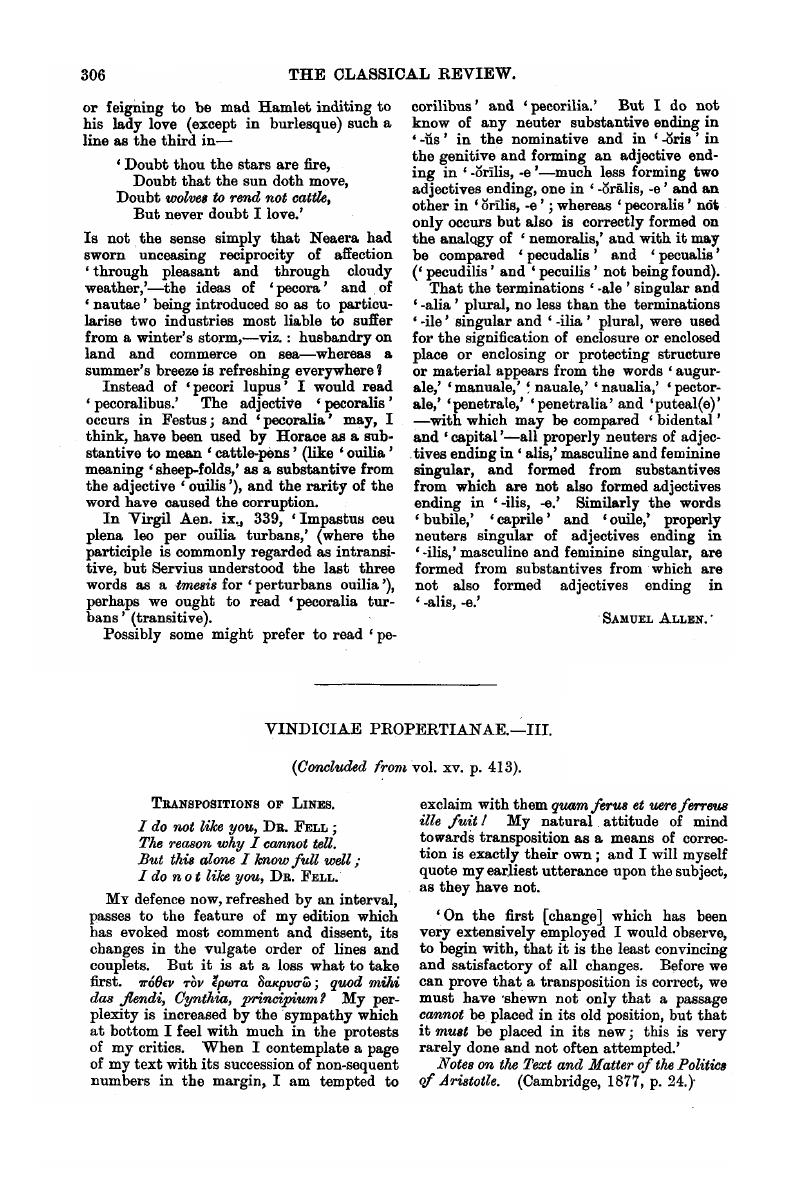No CrossRef data available.
Article contents
Vindiciae Propertianae.—III
Published online by Cambridge University Press: 27 October 2009
Abstract

- Type
- Review Article
- Information
- Copyright
- Copyright © The Classical Association 1902
References
page 307 note 1 Sexti Properti Carmina recognovit Phillimore, Ioannes S. Clarendon Press 1901 PraefatioGoogle Scholar. The Latin words of Professor Phillimore which I have placed in italics mean, it is true, that Mr. Housman ‘has put me on my trial for the same wantonness as his own:’ but Mr. Housman has assuredly never made this charge.
page 307 note 2 The Nation (New York) 1898 p. 318.Google Scholar
page 310 note 1 One point however omitted in my defence (C.R. xv. p. 407) I should like to make here. If the objection to the stop which I placed after una be analysed, it will be found to consist chiefly of a dislike to the emphasis which a pause here is imagined to throw upon the adjective. This is a mere illusion, engendered by the customs of modern verse which associates a strong stress with a pause in or after the first foot. To the ears of all who have not shaken off these associations lines like Eur. Or. 1659 

page 311 note 1 The general sense would not be affected if we accepted Mr. Housman's attractive emendation ‘nec tua sic socero colla daturas eras.’
page 314 note 1 These two considerations have not escaped Mr. Housman, C.R. l.c. p. 354.


